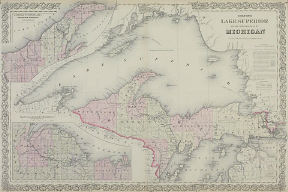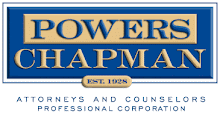Another advantage to reverse mortgages is that the money is nontaxable and it will not affect your eligibility for social security or medicare benefits.
In order to qualify for a reverse mortgage, you must generally be living in the home. You may also qualify if you own a mobile home, manufactured home, or live in a multiple family unit with 4 or less units, one of which is occupied by you as your primary residence. There are three basic types of reverse mortgage. These are:
- Single-Purpose Reverse Mortgages. These are typically offered by state and local government agencies and nonprofit organizations;
- Federally-Insured Reverse Mortgages. These are also known as Home Equity Conversion Mortgages (HECMs), and are backed by the U. S. Department of Housing and Urban Development (HUD); and
- Proprietary Reverse Mortgages. These are generally private loans that are backed by the companies that develop them. Pay careful attention to fees and costs.
Each type of reverse mortgage has its own unique features. Single-purpose reverse mortgages generally have very low closing and other costs. However, they are not available everywhere, and they only can be used for one purpose specified by the government or nonprofit lender. For example, they can be used to pay for home repairs, improvements, or property taxes. In most cases, you can qualify for these loans only if you qualify as having low or moderate income.
HECMs and proprietary reverse mortgages generally tend to be more costly than other types of home loans. The up-front costs can be quite high, so they are generally most expensive if you stay in your home for just a short time because the financing charges are spread over a relatively short time frame. On the plus side, HECMs are widely available, have no income or medical requirements, and can be used for any purpose.
Before applying for a HECM, you must meet with a counselor from an independent government-approved housing counseling agency. The counselor will explain the loan’s costs, its financial implications, and any available alternatives to a reverse mortgage. Counselors should tell you about government or nonprofit programs for which you may qualify, and any single-purpose or proprietary reverse mortgages available in your area.
The amount of money you can borrow with a HECM or proprietary reverse mortgage is dependent on several factors, including your age, the type of reverse mortgage you select, the appraised value of your home. The current interest rates and where you live are also factored in. Generally speaking, you get more money the older you are, the more valuable your home, and the less you owe on it.
The also HECM gives you choices in how the loan is paid to you. You can select fixed monthly cash advances for a specific period or for as long as you live in your home. You also have the option to choose a line of credit. This method allows you to draw on the loan proceeds at any time in amounts that you choose. You also can usually also get a combination of monthly payments to you plus a line of credit.
HECMs generally provide larger loan advances at a lower total cost compared with proprietary loans. But owners of higher-valued homes may get bigger loan advances from a proprietary reverse mortgage. That is, if you have a higher appraised value without a large mortgage, then you may likely qualify for greater funds. Location (for example, your neighborhood) is only one part of the determination of appraised value.
But remember: A reverse mortgage can also deplete the equity in your home. If you plan to pass your home on to your family or a charity, remember that the reverse mortgage is generally due on sale of the property or the death of the borrower. The reverse mortgage must be paid either in cash by the heirs or out of the proceeds of the home sale. The loan plus costs and interest can greatly deplete your home of its value.If you are in a situation where you need money for bills, taxes or living expenses and your only asset is your home which is fully or nearly paid off, a reverse mortgage may be for you. Just remember, thoroughly research your options and go with a reputable lender. Shop around--rates differ from lender to letter, sometimes by a lot. There are several different types of reverse mortgages and the costs and terms differ. Pick the one that is right for you. Keep in mind too, even though you are not making monthly payments to a bank, this is a loan. The loan must be paid back when you die or when you sell your home. Be sure to consult with an attorney before signing any paperwork.
For more information see these websites:
www.aarp.org/revmort/list
www.hud.gov/offices/hsg/sfh/hecm/rmtopten.cfm
www.ftc.gov/bcp/menus/consumer/credit.shtm


